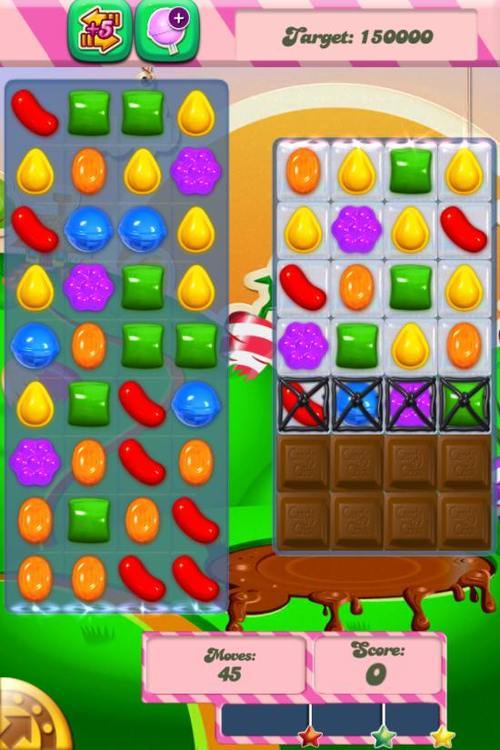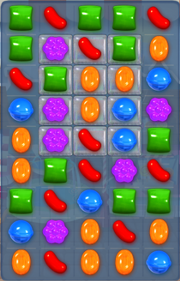Trending
Opinion: How will Project 2025 impact game developers?
The Heritage Foundation's manifesto for the possible next administration could do great harm to many, including large portions of the game development community.

Featured Blog | This community-written post highlights the best of what the game industry has to offer. Read more like it on the Game Developer Blogs or learn how to Submit Your Own Blog Post
An introductory guide to Candy Crush for game designers who are too proud to put up with F2P mechanics and a warning about the folly pride.

Walk a mile in a man's shoes they say. The gaming equivalent would be to play past the tutorial, and keep playing till you've seen some more mechanics.
A friend of mine who doesn't play games had a bit of a Candy Crush habit for a while. She's now a bit disenchanted but the first 35 levels had her hooked enough to replay them rather than pass the paywall for new levels (which can now be passed with a quest per day over 3 days instead of spamming mates on Facebook). And so I sat down and played Candy Crush - I'm now at level 70, which is a bit of a paywall level.
In fact I just was just searching now for a screenshot of it and Chrome auto-completed the search for level 70. It's a poorly designed level that doesn't even encourage purchasing boosters when you understand what's needed to solve it.

It's levels like this, the timed lives and booster purchases that give this game the bad reputation it deserves. It has that F2P stink. But paradoxically it's this same shameless use of unfair difficulty that turns it at times into a Super-Hexagon-Hard game.
Candy Crush is not a casual game. The first run of levels play themselves certainly. Then it gets brutal hard. It has to doesn't it? Otherwise you wouldn't be tempted to pay to bypass levels. But then in order to nickle and dime you it has to throw levels at you that you only barely fail. Level 70 is too easy to screw up. Bad level. But there's others in there that walk the fine line of being just barely completable - and isn't that what game designers strive for?
The mechanics are also interesting. Beyond the basic behaviours of Bejewelled's special gems, Candy Crush's special candies can be combined for some really rewarding effects. Which leads to planning way ahead to get two specials next to each other.
And then we have environmental mechanics like jellies, blockers and ingredients.

The jelly problem is basically that of performing a match at a location on the board. And this serves as an objective for many levels. It's the mechanic I find the most interesting because it involves a lot of forward planning. Yet it's one that is absent from Bejewelled and many other match 3 games (feel free to correct me - Noyb tells me Jewel Quest has this mechanic).
Blockers are simply various board occupants that block progress - forcing matches to be performed by them to clear them. There's also structural blockers in the form of odd level shapes with holes that items will slide to either side of or drop through a space compressing gap. Ingredients are a sort of objective blocker - they have to be commuted to the bottom of the board to be collected as a level objective, but also get in the way of performing matches.
The variety of ideas and their implementation in the game is exhaustive. They want your money, and so they have to give you more content to encourage payments.

What's to take away from this?
That avarice can drive good design, yes. But so can love. What else?
There is a goldmine of ideas in Candy Crush there for the taking. And yet there's game designers out there who will say, I will not dirty my hands with this. I won't sit down with a decent yet horribly flawed game to learn from it and do better.
Which is why we don't have an Indie Candy Crush. We don't have a version of this game that takes everything that's great about it and explores it for its own sake instead of doing it for the money. Indie devs are all, LA LA LA, I'M NOT GOING TO PLAY THAT GAME I DON'T WANT TO LEARN ANYTHING I'M HAPPY IN MY LITTLE BUBBLE OF IGNORANCE. And then go on twitter to decry the ignorance they see in a gaming article's comments.
I got my hands dirty. For what it's worth I lifted ideas from Candy Crush and started to explore other things that could be done with these mechanics:
And I feel like there's something there in those two experiments that could be expanded into a bigger game.
What other games are we too proud to learn from?
Read more about:
Featured BlogsYou May Also Like